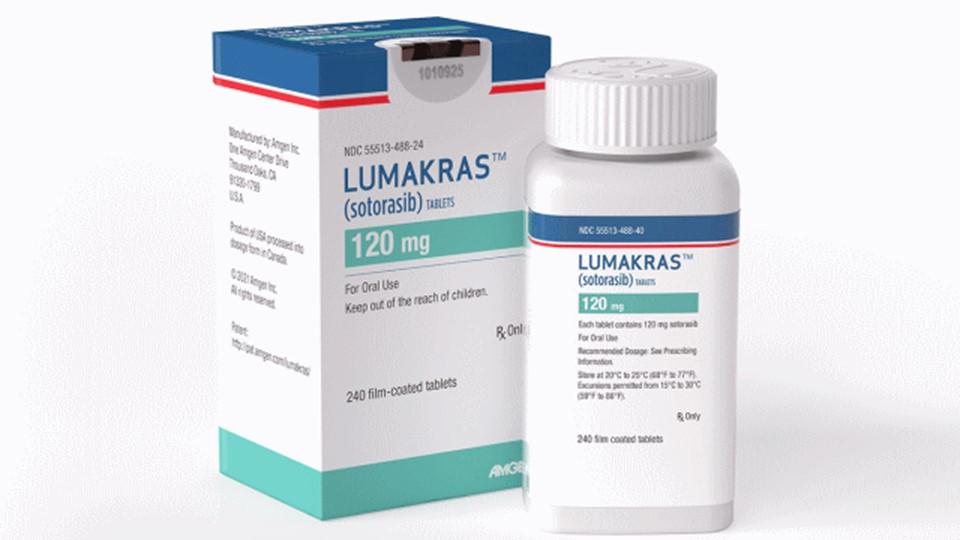FDA panel sceptical on Lumakras confirmatory data

An FDA advisory committee has voted that Amgen’s confirmatory phase 3 trial for KRAS inhibitor Lumakras is not enough to support full approval, but it seems unlikely that the first-to-market therapy will be withdrawn from sale.
By 10 votes to two, the panel concluded that the CodeBreak-200 trial of KRASG12c-mutated non-small-cell lung cancer (NSCLC) was not strong enough to show conclusively that Lumakras (sotorasib) improved progression-free survival (PFS) in this setting.
Lumakras was given accelerated approval by the FDA in 2021 as a second-line treatment for KRASG12C-mutated NSCLC on the back of the single-arm CodeBreaK-100 study, and CodeBreak-200 was designed to confirm the benefit of the drug and support traditional approval.
It showed a 34% reduction in PFS compared to docetaxel chemotherapy, which was statistically significant, although panellists said they were unconvinced by the finding as the trial was small, had problems with its design and was prone to bias, and the benefit in PFS was very short at just five weeks, while the interval between cancer imaging assessments was six weeks.
In a briefing document prepared ahead of the meeting, the FDA reviewer suggested that there were “multiple sources of systemic bias” in CodeBreak-200, including higher patient dropout in the docetaxel arm, and crossover of patients from docetaxel to Lumakras treatment before clinical assessments were carried out and “investigator assessments of progressive disease favouring the sotorasib arm.”
The FDA has said it is not moving forwards with a proposal to withdraw Lumakras from sale, at least for now, and it seems likely that it will ask Amgen to run another confirmatory trial, while keeping the drug available as an option for this hard-to-treat form of lung cancer. It is expected to make a final decision on or before 24th December.
KRAS mutations are seen in around a quarter of NSCLC tumours, with KRAS G12C mutations in particular found in around 13% of cases, but the target defied drug developers for decades.
Lumakras was tipped as a blockbuster therapy when it first reached the market, but sales have grown slowly, coming in at $77 million in the second quarter of this year, in line with the same period of 2022.
Amgen recently reported results from the CodeBreak-300 trial of Lumakras in combination with its EGFR-targeting antibody Vectibix (panitumumab) in chemo-refractory KRASG12C-mutated NSCLC - a use that has been granted breakthrough status by the FDA - and has also reported data as a first-line therapy alongside chemo.
The advisory committee decision was released as rumours started to emerge that Amgen’s main rival in the KRAS category, Mirati, may be bought out by Sanofi, driving a spike in its share price.
Mirati brought the second KRAS inhibitor to market, Krazati (adagrasib), which is set to start a phase 3 trial alongside Merck & Co/MSD’s Keytruda (pembrolizumab) in NSCLC with KRAS and PD-L1 mutations.













